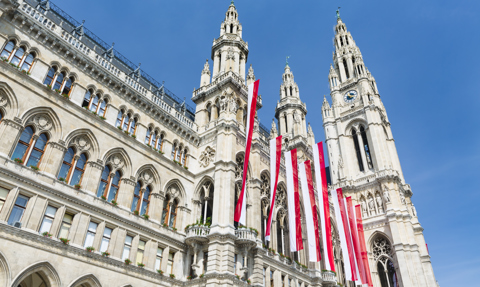National days and public holidays are event date blunders. People, in general, aren't inclined to go to a corporate event on such dates unless it's a concert or an entertaining outdoor event. Many corporate events will fail if scheduled on public holidays. Event planners must choose a date that works for both their speakers and attendees. To achieve that, make sure to always consult public holiday lists when organizing international corporate events and conferences. Avoiding public holidays in Austria is one of the success factors for event organizers. The Austrian event market is more than well-developed, with nearly 400 venues for meetings and business events in 2021, according to Statista.
Table of Contents
List of holidays in Austria (2023)
Public holidays in Austria vary by the state where you work
Types of holidays in Austria
There are two types of holidays in Austria; public and religious.

Austrian public holidays
In Austria, these holidays are celebrated nationwide: New Year's Day, Easter Sunday, Easter Monday, Labour Day, Ascension Day, Whit Monday, Corpus Christi, Assumption Day, National Day, All Saint's Day, Immaculate Conception Day, Christmas Day, and Boxing Day.

Austrian religious holidays
Like in Germany, religious holidays in Austria include, among others, Easter, Pentecost, and Christmas. During these holidays, religious people mostly attend churches and spend time with their families.

List of holidays in Austria (2023)
Cultural holidays
Austria is home to a rich variety of cultural holidays. The famous Vienna Opera Ball, which takes place every year in February, celebrates Austria's rich musical history. The Salzburg Festival is one of the world's most renowned classical music festivals. And let's not forget the Vienna Ball Season, a series of glamorous and formal balls that take place from November to February.

Public holidays in Austria vary by the state where you work
Keeping track of public holidays in Austria can be confusing and take you by surprise. It's hard to make a general conclusion, but most public holidays mean businesses are closed, like on Sundays. Employees get a paid day off, but more importantly, holidays are celebrated by the state where you work and not where you live. So make sure to update your calendar regularly.
